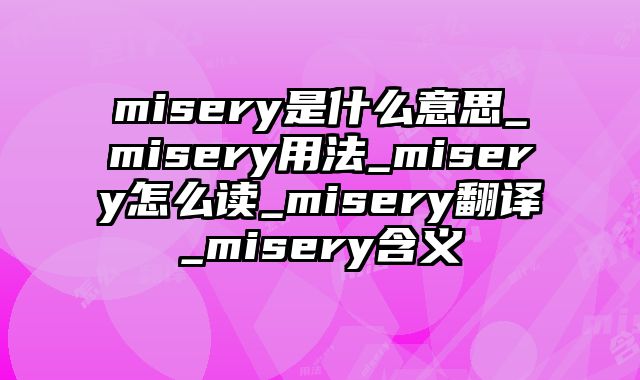CET6单词
offence是什么意思_offence用法_offence怎么读_offence翻译_offence含义
2025-06-08 09:52:16 阅读:0

offence是可数还是?
offence是可数的,复数形式是offences
offence
美 /əˈfens/
英 /əˈfens/
n.
犯罪;违反;过错;攻击
双语例句:
The criminal with serious offence was sentenced to death.
犯有重罪的罪犯被判处死刑。
I apologized to you for my unmeant offence.
我为我的无意冒犯向你道歉。
offence的动词形式?
回答:offence的动词是offend,意思是“v. 得罪,冒犯;令人不悦,令人不舒服;<正式> 犯罪,违法;<正式> 违犯,违反”。
例句
①冒犯
The doctor did nothing to interfere, unwilling to offend the old man.
医生没有采取任何干预措施,不愿去冒犯老人。
②得罪/惹
I don't want to offend her.
我不想得罪她。
No one dare to offend the fiery person.
没人敢惹这个脾气急躁的人。
offence(美英拼法)的动词形式是offend。其常见释义如下。
(1)to make sb. feel upset because of sth. you say or do is rude or embarrassing.得罪,冒犯
(2)to seem unpleasant to sb.令人不适
(3) to commit a crime or crimes犯罪,犯法
(4)to be against what somebody believe is morally right违背人情,违反常律,有悖于
offence是可数还是不可数?
offence是可数的,复数形式是offences
offence
美 /əˈfens/
英 /əˈfens/
n.
犯罪;违反;过错;攻击
双语例句:
The criminal with serious offence was sentenced to death.
犯有重罪的罪犯被判处死刑。
I apologized to you for my unmeant offence.
我为我的无意冒犯向你道歉。
相关拓展
- giggle是什么意思_giggle用法_giggle怎么读_giggle翻译_giggle含义
- cosmic是什么意思_cosmic用法_cosmic怎么读_cosmic翻译_cosmic含义
- jelly是什么意思_jelly用法_jelly怎么读_jelly翻译_jelly含义
- jazz是什么意思_jazz用法_jazz怎么读_jazz翻译_jazz含义
- fair是什么意思_fair用法_fair怎么读_fair翻译_fair含义
- wink是什么意思_wink用法_wink怎么读_wink翻译_wink含义
- bingo是什么意思_bingo用法_bingo怎么读_bingo翻译_bingo含义
- sugar是什么意思_sugar用法_sugar怎么读_sugar翻译_sugar含义
最新发布
-

underdeveloped是什么意思_underdeveloped用法_underdeveloped怎么读_underdeveloped翻译_underdeveloped含义
-

romance是什么意思_romance用法_romance怎么读_romance翻译_romance含义
-

chord是什么意思_chord用法_chord怎么读_chord翻译_chord含义
-

shrewd是什么意思_shrewd用法_shrewd怎么读_shrewd翻译_shrewd含义
-

trot是什么意思_trot用法_trot怎么读_trot翻译_trot含义
-

odor是什么意思_odor用法_odor怎么读_odor翻译_odor含义
-

offence是什么意思_offence用法_offence怎么读_offence翻译_offence含义
-

misery是什么意思_misery用法_misery怎么读_misery翻译_misery含义